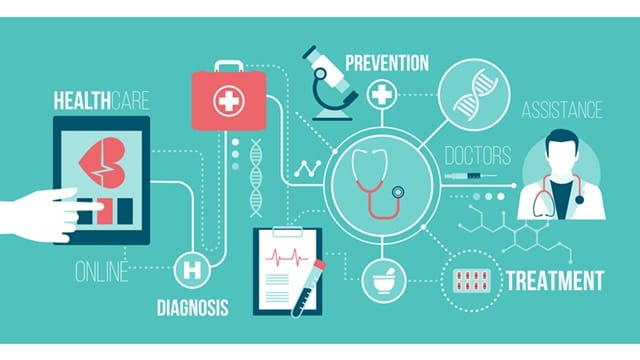The Transformation of Healthcare through Cloud Computing
In recent years, healthcare has witnessed a significant transformation, largely driven by the integration of cloud computing. The need for secure, scalable, and cost-effective solutions has never been more pressing as the healthcare industry grapples with increasing data volumes. Cloud computing is proving to be a game-changer, offering healthcare providers the tools to manage vast amounts of data efficiently while enhancing patient care.
The Shift to Cloud-Based Solutions
Traditionally, healthcare organizations relied on on-premises data storage systems, often with high maintenance costs, limited scalability, and potential security risks. The shift to cloud computing is reshaping the industry by providing a flexible and reliable alternative. With cloud-based solutions, healthcare providers can store and access patient records, medical images, and other critical data in real-time, regardless of location. This accessibility is particularly crucial in emergencies, where immediate access to patient information can be life-saving.
Enhanced Collaboration and Data Sharing
One of the most significant advantages of cloud computing in healthcare is the ability to facilitate collaboration and data sharing. Healthcare professionals can now share patient information across different departments, hospitals, and even countries, ensuring that patients receive the best possible care. This seamless communication streamlines workflows, reduces the risk of errors, and improves patient outcomes. Moreover, cloud-based platforms support telemedicine, allowing doctors to consult with patients remotely, which has become increasingly important in the wake of global pandemics.
Data Security and Compliance
Data security is a top concern in the healthcare sector, given the sensitive nature of patient information. Cloud computing providers are well aware of this and have implemented robust security measures to protect data from breaches and unauthorized access. Encryption, multi-factor authentication, and regular security audits are just a few examples of the safeguards in place. Additionally, cloud service providers are well-versed in regulatory compliance, ensuring that healthcare organizations meet standards such as HIPAA (Health Insurance Portability and Accountability Act) in the United States or GDPR (General Data Protection Regulation) in Europe.
Cost Efficiency and Scalability
For healthcare organizations, cost efficiency is a critical factor. Cloud computing offers a pay-as-you-go model, which means that healthcare providers only pay for the resources they use. This model eliminates the need for significant upfront investments in hardware and software, making it easier for smaller practices and rural hospitals to adopt advanced technologies. Furthermore, the scalability of cloud services allows healthcare organizations to adjust their resources according to demand, whether it’s during peak seasons like flu outbreaks or expanding services to accommodate a growing patient base.
The Role of Artificial Intelligence and Big Data
Cloud computing in healthcare isn’t just about storing data; it’s also about leveraging that data to improve patient care. Artificial intelligence (AI) and big data analytics are increasingly being integrated into cloud platforms, enabling healthcare providers to analyze vast datasets for insights. These insights can lead to early diagnosis of diseases, personalized treatment plans, and even predictive analytics that foresee patient needs before they arise. For example, AI algorithms can analyze patient histories and predict potential health risks, allowing for preventive measures that improve patient outcomes and reduce healthcare costs.
Challenges and Future Outlook
While the benefits of healthcare cloud computing are evident, there are challenges to consider. Data security remains a top priority, as cyber threats evolve and become more sophisticated. Healthcare organizations must remain vigilant and continuously update their security protocols. Additionally, the adoption of cloud computing requires a cultural shift within organizations, with staff needing training to adapt to new systems and processes.
Looking ahead, the future of healthcare cloud computing is promising. As technology continues to evolve, we can expect even more innovative solutions that further enhance patient care and operational efficiency. The integration of AI, machine learning, and the Internet of Medical Things (IoMT) will likely drive the next wave of advancements, making healthcare more personalized, predictive, and preventive.
Conclusion
Cloud computing is revolutionizing the healthcare industry, offering solutions that address the challenges of data management, security, and cost. By embracing cloud technology, healthcare providers can improve patient outcomes, enhance collaboration, and ensure that their systems are scalable and secure. As the healthcare landscape continues to evolve, cloud computing will undoubtedly play a central role in shaping the future of patient care.



